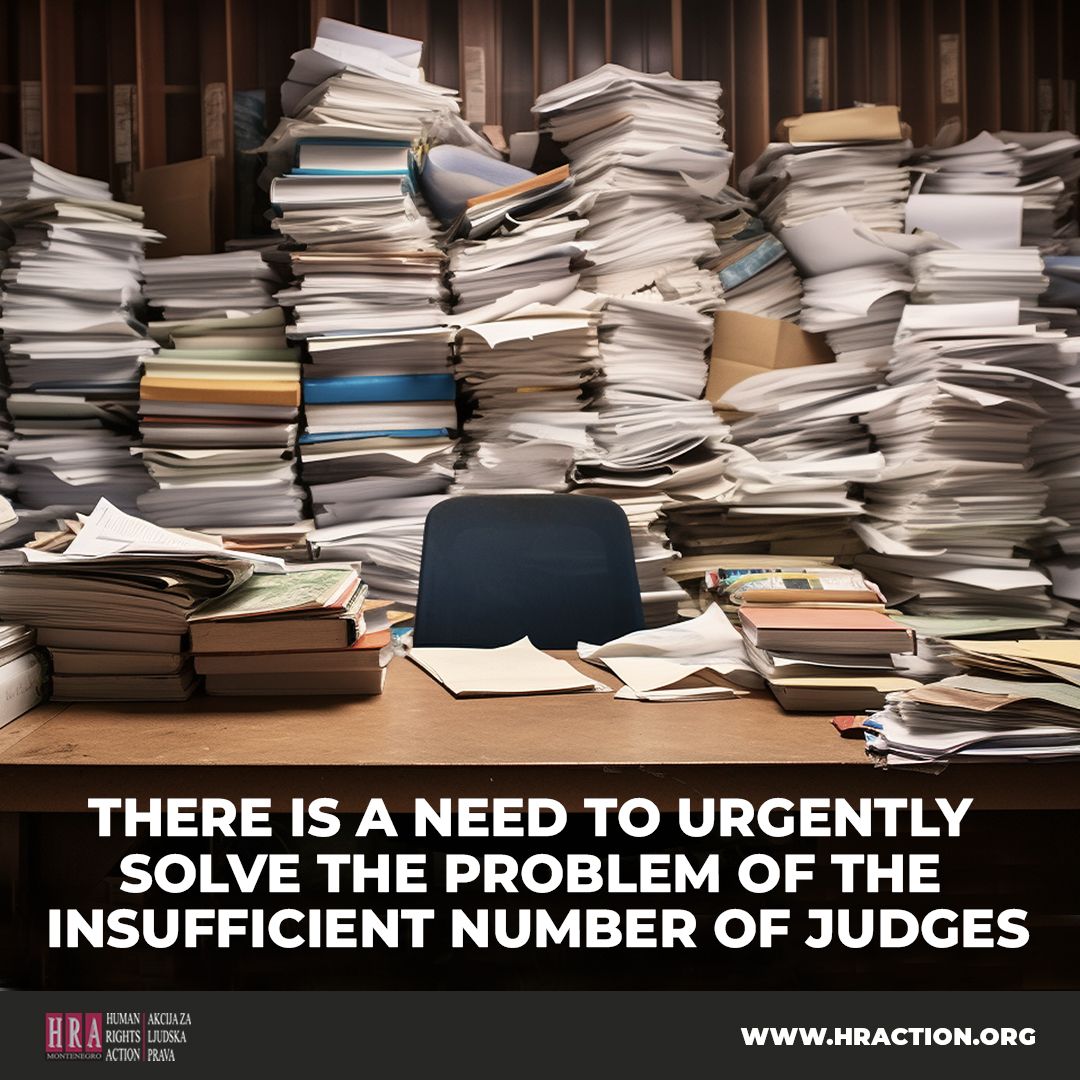
THERE IS A NEED TO URGENTLY SOLVE THE PROBLEM OF THE INSUFFICIENT NUMBER OF JUDGES
12/10/2023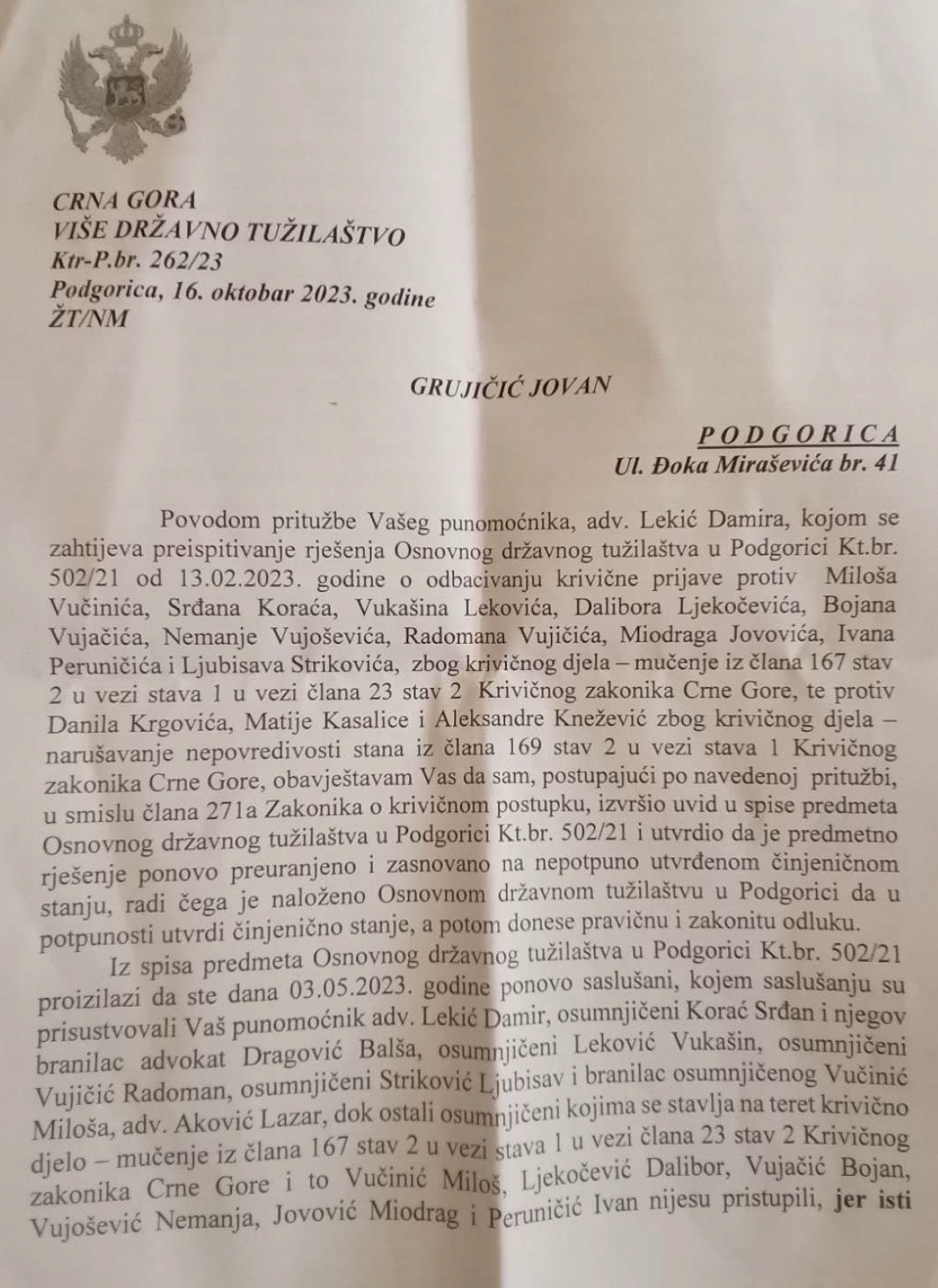
HRA APPEAL: URGENTLY RECUSE PROSECUTOR MAJA KNEŽEVIĆ, WHOSE DECISION DISMISSING THE CRIMINAL CHARGES OF POLICE TORTURE HAS BEEN REVERSED FOUR TIMES
23/10/2023International Day for the Eradication of Poverty: Montenegro is not even close to fulfilling the 2014 recommendations of the UN Committee on Economic, Social and Cultural Rights aimed at combating poverty
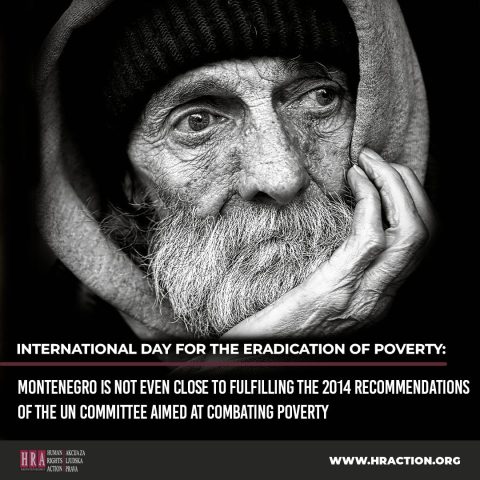
Montenegro has been three years late in submitting its report to the UN Committee on Economic, Social and Cultural Rights, so to date there is no official information on the fulfilment of the Committee’s recommendations received back in 2014. The assessment of the Human Rights Action is that none of the recommendations related to the respect of social rights and the suppression of poverty have been implemented.
The main recommendation, to provide precise data on the number of people who cannot meet basic existential needs, including adequate housing, has not been fulfilled, and neither was the recommendation to increase the amount of social benefits starting from the year 2014, as the FFS (Financial Family Security), with the child allowance included, still fails to meet the minimum existential needs. Montenegro does not have a strategy for the fight against poverty, and, judging by the Government’s Medium-Term Work Programme for the period 2022-2024, there are no plans for its development.
Montenegro only has rough estimates, but no precise data on the number of citizens and other residents who cannot meet their basic existential needs, including adequate housing which implies access to basic infrastructure – water supply, heating, the sanitary network and electricity, or on the number of people who live in overcrowded and structurally unsafe apartments. Montenegro does not even have data on the number of homeless people. To date, there have been no adopted by-law of any kind that would explain how the homeless are taken care of, or what services are available to them and in what way, while the employees of the Centre for Social Work do not have defined steps to follow.
Last year (2022), child allowances were expanded to include children up to 18 years of age, in the amount of EUR 30 per month per child, while benefits for mothers with three or more children in the amount of EUR 192 per month were re-introduced, which will certainly help poor people with children, as well as families with more than three children who are not entitled to FFS. However, the question of the sustainability of such measures certainly seems justified. The Analysis conducted by the World Bank and UNICEF in Montenegro indicates that the “increase in spending on non-targeted financial benefits” affects the financial stability and sustainability of the social and child protection system and increases Montenegro’s public debt.
On the other hand, the increase in social benefits by EUR 36.60 (from 2014 to August 2023) is not nearly enough, because the FFS of a family of four, including child allowance, is still four times less (a total of EUR 204.60 = EUR 144.60 FFS + EUR 60 allowance for two children) than the officially estimated cost of the minimum consumer basket in Montenegro (EUR 818.20 as of June 2023, according to MONSTAT). The Association of Free Trade Unions has estimated that the consumer basket actually requires at least EUR 1,650 for a family of four (!), because the real needs of the family include – besides food – the costs of cleaning and maintaining a household, utilities, rent and/or a housing loan, clothing, footwear, education and so on. In light of this realistic assessment, the FFS of a family of four, including child allowances, is 8 times less than the consumer basket. To put it in other words – it is absolutely insufficient.
We ask once again that the amount of social (financial) benefits be increased in accordance with the recommendations of the UN Committee on Economic, Social and Cultural Rights from 2014 so as to make it possible to meet the basic living needs, and that social benefits be carefully directed towards the most vulnerable population. We also ask that the allocation of one-off financial assistance be reviewed, and that FSS users who are able to work be adequately encouraged to seek employment.
We remind that the UN Committee has recommended the following to Montenegro back in 2014:
- Establish a system for collecting statistical data on the application of economic, social and cultural rights;
- Montenegro’s national plans, programmes and strategies related to the enjoyment of human rights should immediately envisage mechanisms for monitoring and evaluating the success of their implementation, with the aim of ensuring that even temporary results be available at any implementation stage;
- Increase the amount of social benefits so as to ensure an appropriate standard of living for individuals and families, especially for the unemployed, the elderly and persons with disabilities;
- Increase budget allocations for the healthcare system and take efficient measures against corruption in healthcare;
- Establish shelters for the homeless, and
- Provide appropriate care for persons who, in the absence of suitable accommodation, are continuing to stay in the psychiatric hospital in Dobrota even though their health condition allows them to leave the facility (the so-called social patients).
Unfortunately, not a single one of these recommendations has been fulfilled to date. We expect the new Government and the new Minister of Labour and Social Welfare to urgently take a look at the recommendations of the UN Committee, provide the necessary data and, based on them, take strategic measures to adequately reduce poverty in the shortest possible time.



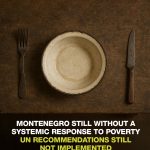
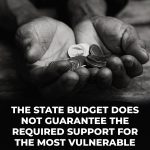
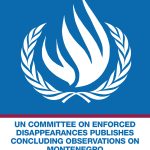
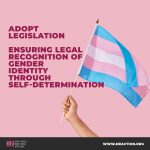
 English
English